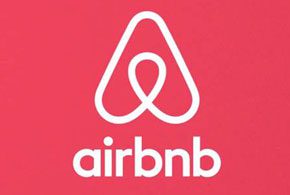Airbnb is taking San Francisco to U.S. District Court over rules the city recently approved that mandate that Airbnb allow rental housing listings on its site only for hosts who have registered with the city.
That requirement, argues Airbnb in its lawsuit, is a violation of the federal Communications Decency Act (CDA), the Stored Communications Act (SCA) and the First Amendment, according to a June 27 post on the AirbnbAction blog.
The problem with the city’s new registration requirement, the company said, is that it provides fines and penalties on Airbnb if the company does block rental listings by non-registered hosts, even though that would be illegal based on existing federal law.
The CDA, which passed in 1996, created national rules about how Internet businesses can be regulated, Airbnb argues. A key part of the CDA is Section 230, “which prohibits states and local governments from holding Internet platforms liable for content created by people who use their Website.” That means, according to Airbnb, that the company should not have to make sure that all hosts are pre-registered with the city of San Francisco before posting their rental accommodations on its Website, the post continued.
The CDA and its Section 230 “is an essential U.S. law promoting freedom of expression and innovation on the Internet,” the company said in a related statement that a spokesman shared with eWEEK.
Airbnb said it has been working with the city for some time to improve and refine rules that would regulate rental rooms under Airbnb’s business but that “instead of fixing the process, the Board of Supervisors recently passed a hastily crafted proposal requiring Airbnb to remove all unregistered hosts. This legislation ignores the reality that the system is not working and this new approach will harm thousands of everyday San Francisco residents who depend on Airbnb. It also violates federal law.”
Airbnb’s post also says that the company held 11 town hall meetings with its hosts in the city to explain the registration process and has encouraged them to register, but that many hosts have chosen not to do so.
Instead of just creating a blanket requirement for registration starting in July, the company said it previously suggested a grace period for new hosts to be registered and less stringent requirements for hosts who rent their rooms for fewer than 14 nights a year.
“Despite the Board of Supervisors’ acknowledgement that the current process is broken, the proposal does nothing to address the problem,” the post continued. “Instead, the new law doubles down on a broken system by threatening Websites that don’t remove home sharers who can’t navigate a confusing, inefficient and bureaucratic process that often takes months to complete.”
Airbnb also argues that the city’s registration requirement also violates the federal Stored Communications Act, “which creates uniform privacy protections for Internet users and prevents cities from simply demanding that platforms turn over user information without a subpoena or other legal process.”
The company said it is “ready and willing to work with City government to find common ground on a legal, sensible approach to regulation that protects housing and simplifies the process, and we are hopeful this dialogue can continue as quickly as possible,” the post continued. “We share the City’s concern about unwelcome commercial operators converting affordable rental housing to illegal hotels. Within the last year, over 200 listings have been removed in San Francisco.”
David Campos, the San Francisco city supervisor who introduced the new rules, told The San Francisco Examiner: “It’s disappointing but not surprising” that the company sued the city over the issue. We’re confident in the end we will prevail.”
Campos told the newspaper that Airbnb’s willingness to cooperate is not true. “Airbnb doesn’t really want to work with the city,” he said. “Its view of the world is ‘our way or the highway.'”
Fines under the new rules can reach up to $1,000 per day, the story reported. A hearing is scheduled for Aug. 1 on a request from Airbnb for an injunction halting the law while the lawsuit is under way.
Airbnb was founded in August 2008 as a Website where people can list and book places to stay around the world, often in someone’s home. The service includes more than 34,000 cities in about 191 countries. About 60 million people have used the service since it began, according to Airbnb.
